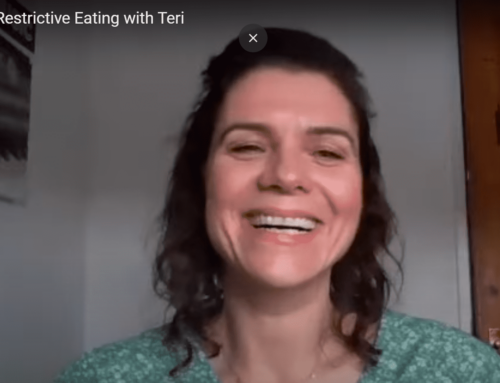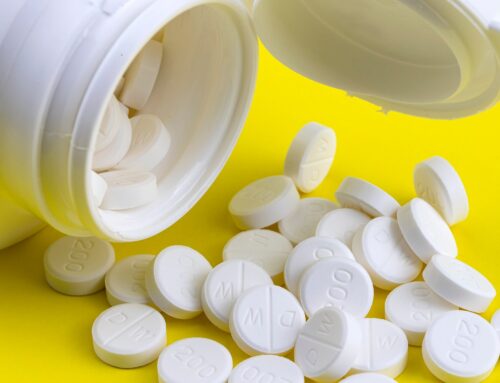Foods to fuel your next workout
Are you maximising the benefits of your workout with proper nutrition?
Whether you’re a seasoned athlete or a beginner at the gym, fueling your body with the right food before and after you exercise means you’ll perform better and recover faster.
In this ultimate guide to pre- and post-workout nutrition, you’ll learn what food to eat around your gym sessions to get the most from each workout and reach your fitness goals faster.
From carbohydrates to protein, you’ll learn the best food choices to fuel your next workout and improve your endurance. With evidence-based recommendations and practical lessons from my nutrition clients, this guide will help you make informed decisions about what food to eat to fuel your workouts.
The importance of pre- and post-workout nutrition
The right fuel is important for training because you need to provide your body with its preferred energy sources:
- Adequate carbohydrates allow you to train harder for longer
- Proper hydration reduces fatigue and improves decision making
- Eating enough protein allows your muscles to repair and grow
- Getting enough healthy fat can help prevent sickness and inflammation
To get fitter and stronger you need to work hard. Regardless of what you do in the gym, food gives you the fuel to push yourself. After all, nobody ever got better at anything by going through the motions.
Whether that’s pushing yourself in an exercise class, bootcamp, spin class, training for HYROX or strongman your performance will be compromised without fuel.
Pre-workout nutrition: Fuelling your body for optimal performance
In an ideal world, you’d eat 90-120 minutes before training to ensure there is some ‘fuel in the tank’ to allow you to push hard.
The aim is to provide enough glucose (sugar from the carbs you eat) for your muscles to work intensely.
But the best time to eat is going to come down to your schedule and personal preferences and you’ll need to experiment a little with timing and food choices (more on those below) before you get it right.
Some pre-workout meal/snack ideas:
- ½ banana + 4 tablespoons of 0% fat plain Greek yoghourt with a drizzle of honey
- 1 apple (or a handful of grapes) + 1 hard-boiled egg
- Protein shake with almond milk, handful of berries, and ½ scoop protein powder
- Handful of raisins and nuts (2 parts raisins to 1 part nuts)
- Instant oats with almond milk (optional) and fruit
- Peanut butter and banana on a slice of toast
- Apple with peanut (or almond) butter
What should you eat at lunch before a workout?
Let’s say you eat lunch at 12:30 then join our Tempo class at 18:30.
As you have plenty of time before training, then aim for a high protein and fibre meal as it will digest slowly.That in turn keeps you feeling fuller for longer and your hands out of the office biscuit tin 😉
How to build a pre workout meal
You’ll notice from the list above the options all contain a mixture of carbohydrates, proteins and fats.
Pre workout nutrition isn’t as complicated as you might think. A balanced plate of food looks like this:


But why are those macronutrients important for exercise?
Each of the three major food groups (macronutrients) supports exercise in different ways.
Carbohydrate
Carbs are your instant access fuel source. When you eat something like bread, the carbs it contains get stored as glucose in your muscles and liver. Ensuring you have enough glucose in your body means you can train harder at longer intensities which is the key to improved workout performance.
Protein
Because your body is always using protein to repair its cells, it’s a good idea to eat it regularly, including before training. Your body can’t make its own protein so if you don’t eat enough, it’s harder to repair, maintain and build muscle.
Fat
Appropriate amounts of healthy fats like olive oil improve hormonal health and help you fully absorb certain vitamins which can mean you get sick less often. Less sickness means less time away from the gym!
What to eat closer to exercise:
If you need to eat closer to training then reduce the protein and look for lower fibre foods to speed up digestion. After all, you don’t want a lot of undigested food in your system affecting performance.
For example, a bowl of Rice Krispies with semi skimmed milk is a good option when you’re short on time but need some fuel before you workout.
What to eat after a workout?
After you exercise, your priority is to help your body recover.
During training you use up your glycogen stores so it’s important to top those up by eating some rice, potatoes, pasta, bread, etc. with your next meal.
Because your muscles have been put under stress, they’ll also need some nutrients to repair and grow. That comes from the protein in the meat, fish, dairy, pulses, tofu etc. you eat.
Fibre is a key component of your overall health and aids digestion so, just like your mum always taught you, if you want to grow up to be your favourite athlete or Gladiator then eat your veggies!
As you’ll have seen already, fats are vital for health and optimal bodily function. Some help reduce inflammation whilst others will aid in absorbing nutrients and hormone production. They can even be used for fuel for less explosive movements. So, don’t be afraid of a little olive oil on your salad or peanut butter on your toast.
Remember, without proper recovery from good nutrition and sleep your body is more likely to be sore after training which in turn compromises your next session.
Don’t make the mistake of wearing your DOMS like a badge of honour. If you’re too sore to move properly then your next workout will suck and you’re more likely to get injured too.
Finally, think of training as laying down the blueprints to build a stronger body. It’s only when you rest (sleep) that the little ‘builders’ inside your body get to work and use all of the materials (protein, carbs and fats) to repair your body and make it fitter and stronger.
Which brings me on to…
Eating enough to fuel your workouts
Don’t make the mistake of eating very little and exercising a lot to speed up fat loss or maintain an overly lean physique.
Your performance will suck and you’ll be ravenously hungry leaving you susceptible to episodes of uncontrollable eating.
From experience, many of my clients come to me wanting to improve their performance and the number one thing holding them back is lack of fuel.
As Teri says, you can’t realistically run a marathon (well) on 1,300 calories per day!
Fat loss is a common goal. Whilst that does require creating a calorie deficit, don’t make the mistake of keeping calories too low.
When that happens, you can’t train hard enough to get the full benefit from each session.
Which means you build less muscle, so you have less to show for your hard work dieting when the fat has gone.
Not to mention the crippling DOMS you’ll get by under eating which may even put you off working out all together.
How to fuel two workouts in a day
If you use the gym twice per day or play sport in the evening after a weight’s session, then you have two priorities:
- Rehydrate.
- Replenish carbohydrates.
This exact question came up at a nutrition seminar I gave at Athlete Movement:
Remember, dehydration kills your performance and concentration so an electrolyte drink can be particularly helpful before and after both sessions.
When you move explosively (lift weights, sprint, jump etc.), you use up the stored energy in your muscles (glycogen).
These stores are topped up from the carbohydrates (bread, pasta, rice etc.) that you eat so having a carb heavy meal between sessions will help your performance in the second session.
In the video you’ll hear me mentioning electrolytes with carbohydrates (think full sugar Lucozade sport).
That’s because I play sport closer to game time and liquid nutrition digests faster and reduces the risk of anything ‘bouncing’ 🤢.
Remember you can’t compete at your best in a calorie deficit. So choose the timing of your fat loss phases to be out of season if you’re competitive.
Meal ideas to fuel your next workout
If you’re stuck for inspiration around what to eat to fuel your workouts then this might help.
Below are a bunch of ideas you can try out including vegan, gluten free and vegetarian options.
Gym ready healthy breakfast ideas:
- Scrambled Tofu or eggs on avocado on toast, piece of fruit
- Protein porridge – use 50-100g of oats, one scoop of protein, mix (adding anything else like desiccated coconut, flax seeds, chia seeds) then add milk/water/mix and microwave for 3-4 mins stirring twice
Gym ready healthy lunch ideas:
- Baked beans on toast – sprinkle some cheese on if you’re inclined – add a fried egg for the extra protein (if not plant based/vegan)
- Leftover spaghetti Bolognese
- Sandwich and fruit with a protein shake
Gym ready healthy snack ideas:
- Carrot sticks dipped in hummus with few nuts
- Oat bar like Nature Valley, or protein bar
Gym ready healthy dinner ideas:
- Spaghetti Bolognese made with fresh mince, soy mince or frozen mince
- Chick Pea & lentil curry
- Sausages and mash with a veg of choice – always a winner and easily plant based too
Remember you can always double up on things like shepherd’s pie, curry and spaghetti bolognaise, so you have leftovers for the following day’s lunch.
You can download more ideas here.
Conclusion: The role of nutrition in maximising your workouts
Fuelling yourself with the right nutrients has a big impact on your workout performance, progress and ultimately how much you enjoy your training.
With that being said, it is not as complicated as you might think.
Having read this article, you should understand the importance of carbohydrates for fuel, protein for recovery and fats for optimising health.
You should also now realise that the overall quality of your diet alongside how much you sleep, and rest has a far bigger impact than any pre-workout meal or supplement ever can.
Don’t struggle alone though. Whilst the fundamentals of workout nutrition are simple, how you apply them to your goals and lifestyle rarely are. For example, take my client Helen who was eating plenty of ‘healthy’ foods but still under fuelling herself until we worked together:

So, if you want my support to unlock your true potential, just like Helen did through the support and accountability 1:1 coaching bought her then get in touch.
Thanks for reading!
Tim


